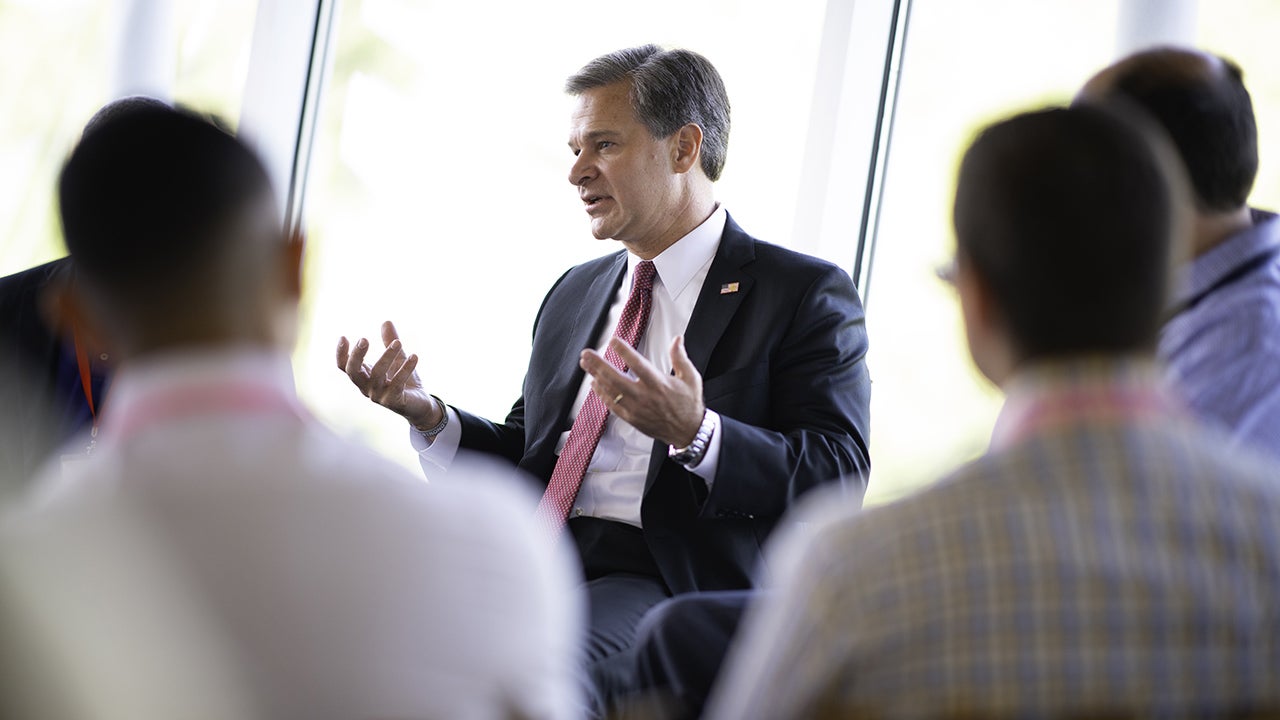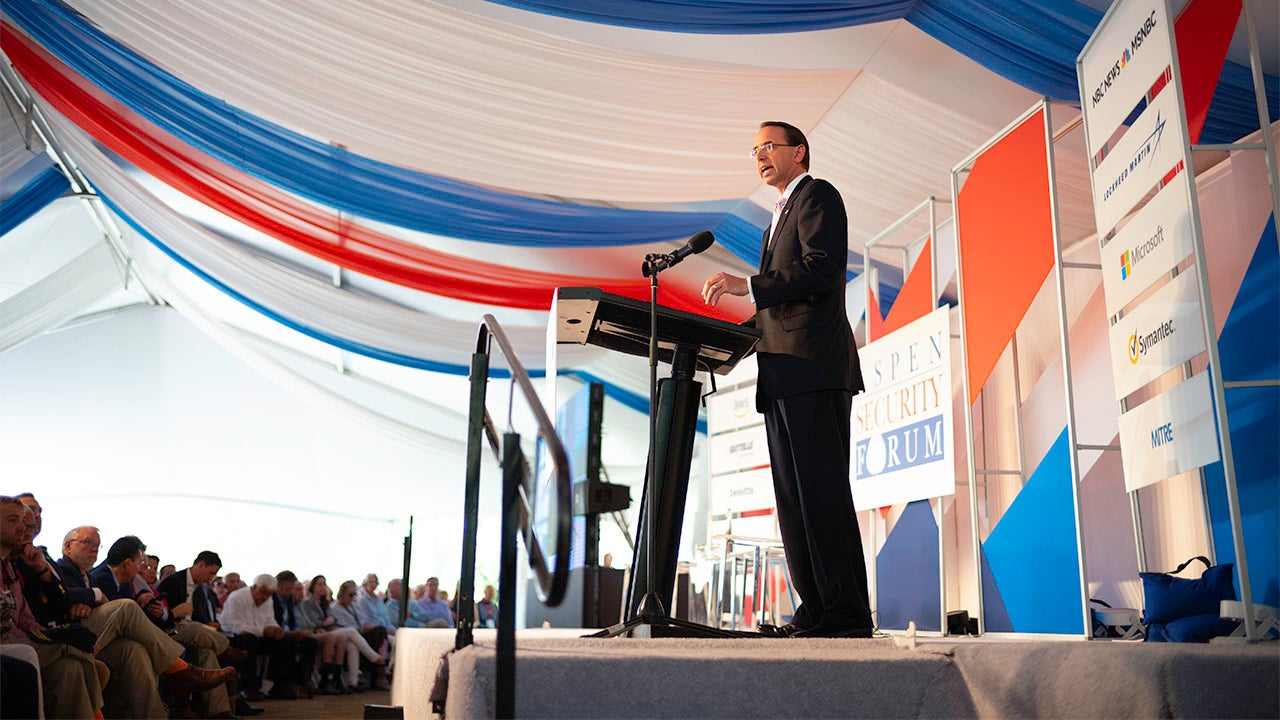Between Donald Trump’s meeting with Vladimir Putin in Helsinki, the indictment of 12 Russian officials for interfering in the 2016 election, and Trump’s decision to invite Putin to the White House, this year’s Aspen Security Forum came with a decidedly Russian backdrop. But the conversations between were wide-ranging, from the influence of China, Iran, and North Korea to cybersecurity, modern nuclear strategies, and the potential for war. Below are a few highlights from the stage.
Confronting Global Cyber Threats
Rod Rosenstein called Russia’s attempt to meddle in the 2016 presidential election “just one tree in a growing forest.” The deputy attorney general detailed the history of Russian influence campaigns in US politics and unveiled a report identifying the major cyber threats that the country faces today.
China Rising
President Xi Jinping’s leadership in China poses a unique challenge to US national security. Panelist Ashok Kumar Mirpuri, Singapore’s ambassador to the United States, is focused on the threat of China’s investment efforts. He encouraged the US to compete and provide an alternative to the infrastructure and development projects that China is offering in Southeast Asia.
There’s a War Coming
Wendy Sherman, former Undersecretary of State for Political Affairs, worries that other regions of the world will become major hot spots for war if the US does not maintain its role as their security guarantee. In the case of North Korea, she is doubtful the country will denuclearize unless Kim Jong Un’s regime is promised continued power.
There’s a War Coming, continued
Yousef Al Otaiba, current United Arab Emirates ambassador to the US, is no stranger to criticism about his country’s military involvement in Yemen. He said the UAE’s efforts are an attempt to prevent Iran from dominating the country— and the region as a whole.
Securing the Homeland
At the Department of Homeland Security, Secretary Kirstjen Nielsen is focused on emerging threats like the use of drones to thwart national security efforts. She wants her organization to have the authority and the capacity to deal with these, but it requires help from Congress.
Peace on the Peninsula
Michael McCaul, Chairman of the House Committee on Homeland Security, stressed that now is the time to put maximum pressure on North Korea. He noted that while sanctions on the state might exist, they are not being enforced.
A New Nuclear Arms Race
Today’s nuclear arms race has drawn many comparisons to the Cold War. While Andrew Weber, former Assistant Secretary of Defense for Nuclear, Chemical, and Biological Defense Programs, believes we must update our arsenal, he is wary of the blurred line between conventional and nuclear weapons.
Taking Our Fate into Our Own Hands
Emily Haber, Germany’s ambassador to the US explained the need for a country and its citizens to feel secure. This is why she worries when the credibility of NATO’s principle of common defense is questioned.
Taking Our Fate into Our Own Hands: Part II
Mikk Marran, Director General of the Estonian Foreign Intelligence Service, has felt the direct effects of Russia’s aggression. His agency is Estonia’s first line of defense. He described the Kremlin’s tools and tactics, including the use of influence agents.
You can watch other clips from the Forum, including videos of every session, on the Aspen Institute YouTube page.




